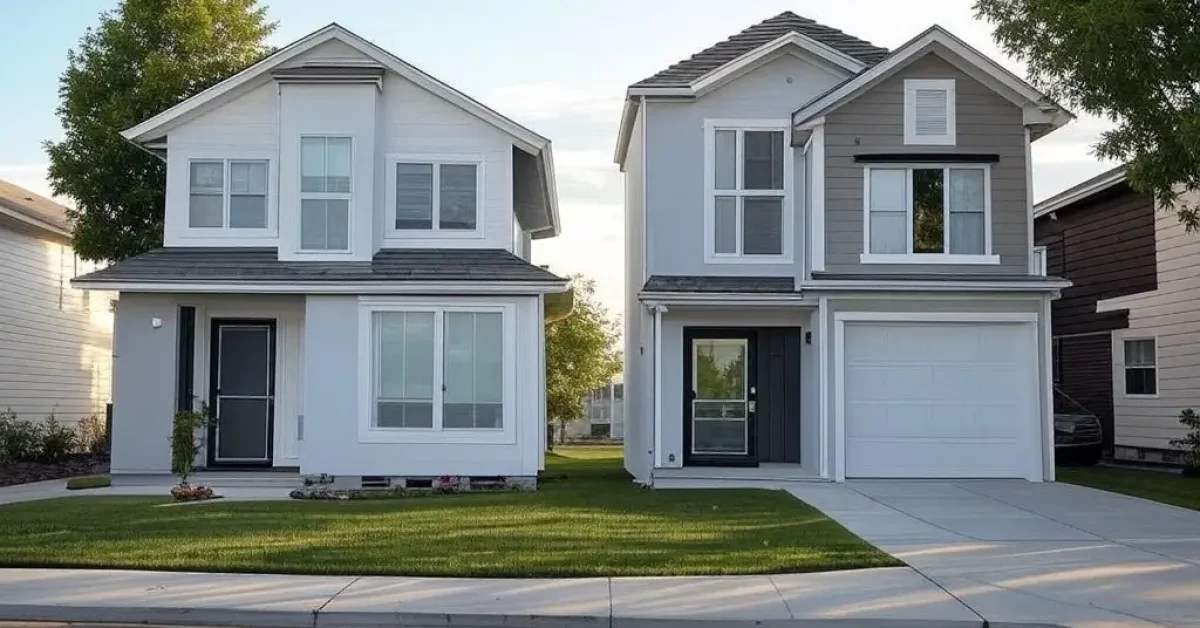Have you ever wondered why some houses in the UK come with a “leasehold” attached instead of full ownership? Is it a good idea to buy one, or could it be a hidden trap? Let’s dive into the pros, cons, and key details of buying a leasehold house in the UK!
When you think about buying a house, you probably imagine owning it outright. But in the UK, many homes are sold on a leasehold basis, a concept that can be confusing to first-time buyers or even seasoned property investors. In this article, we’ll walk you through everything you need to know about buying a leasehold house in the UK—from what it means to buy a leasehold property to the potential costs and benefits.
What Is a Leasehold Property?
A leasehold property means that you don’t own the land on which the property is built. Instead, you own the building (your home) for a specific period of time, which is typically long (e.g., 99 or 125 years) but can decrease over time. When you buy a leasehold house, you’re essentially renting the land from the freeholder (the landowner).
- You own the property, but not the land.
- Lease terms can vary, typically 99 to 125 years.
- The freeholder may charge ground rent and have certain rules or conditions.
Why Should You Care About the Lease Length?
If the lease length is too short, it can cause issues when selling or remortgaging the property. As the lease gets shorter, the property becomes less valuable. You may even need to pay extra to extend the lease.
How Does Buying a Leasehold House Work?
When you buy a leasehold house, you will enter into an agreement with the freeholder. This agreement will outline:
- The length of the lease.
- The ground rent you need to pay annually.
- Your rights and obligations as a leaseholder.
Important Considerations:
- Ground Rent: This is a yearly payment to the freeholder. Depending on the lease, this could be a small or significant amount, and sometimes it increases over time.
- Lease Length: A lease under 80 years can affect the resale value and might make it harder to get a mortgage.
- Service Charges: Some leasehold houses also have service charges for maintenance of common areas (if applicable).
Pros and Cons of Buying a Leasehold House in the UK
Before deciding whether a leasehold property is right for you, it’s important to weigh the advantages and disadvantages.
Pros:
- Lower Initial Costs: Leasehold properties are often cheaper to buy than freehold properties.
- Less Maintenance Responsibility: In some cases, the freeholder is responsible for maintaining the land and the exterior of the building.
- Investment Opportunity: Leasehold properties in certain areas may appreciate over time.
Cons:
- Ground Rent and Charges: Ongoing fees, such as ground rent and service charges, can add up.
- Decreasing Lease Length: As the lease gets shorter, its value decreases. You may also find it harder to sell or get a mortgage.
- Limited Control: You may have limited control over the property, especially if the freeholder imposes rules or restrictions.
Understanding the Costs Involved
In addition to the purchase price of a leasehold house, you’ll need to be aware of several additional costs. These may include:
- Ground Rent: This can range from a small amount to a few hundred pounds per year, depending on the lease.
- Service Charges: If the property is part of a larger development, you may need to pay for upkeep and repairs.
- Lease Extension Costs: If your lease has less than 80 years remaining, you might need to pay for a lease extension.
Estimated Costs of Leasehold Ownership
| Cost Type | Typical Range | Notes |
|---|---|---|
| Ground Rent | £50 – £500 per year | Can increase over time |
| Service Charges | £100 – £1,000+ per year | Depending on the property size |
| Lease Extension | £5,000 – £10,000+ | Depending on remaining lease length |
How to Buy a Leasehold House in the UK: A Step-by-Step Guide
- Research the Property: Understand the lease length, ground rent, and service charges before making an offer.
- Instruct a Solicitor: It’s advisable to seek advice from a solicitor experienced in leasehold properties to help with the legalities and paperwork.
- Get a Survey: Ensure the property is in good condition and that there are no hidden issues.
- Check for Leasehold Restrictions: Make sure you understand any restrictions, such as limits on making alterations to the property.
- Consider Lease Extension Options: If the lease has less than 80 years remaining, you may want to start the process of extending the lease.
Can You Get a Mortgage for a Leasehold House?
Yes, but lenders may be less willing to offer a mortgage for properties with a short lease. It’s best to look for properties with a long lease (over 80 years) to avoid complications.
Key Takeaways
- A leasehold house means you own the property, but not the land.
- Be aware of ground rent, service charges, and lease length when purchasing.
- A shorter lease can affect the resale value and make financing more difficult.
- Weigh the pros and cons carefully before buying a leasehold property.
FAQ
Q: Can I sell a leasehold house?
Yes, you can sell a leasehold house, but the lease length can affect the value and marketability. Properties with leases under 80 years may be harder to sell.
Q: How long can I live in a leasehold house?
As long as the lease is still valid. If the lease runs out, ownership reverts to the freeholder. However, you can extend the lease for a fee.
Q: Can I extend the lease of my property?
Yes, as a leaseholder, you have the right to extend your lease (if it has more than 80 years left). The cost will depend on several factors, including the length of the lease and property value.
Conclusion
Buying a leasehold house in the UK offers an affordable way into property ownership, but it’s essential to understand the implications.




